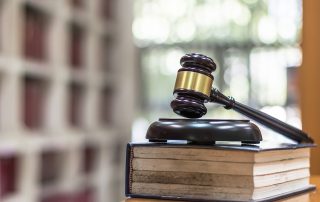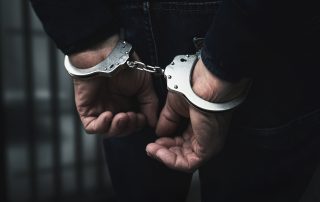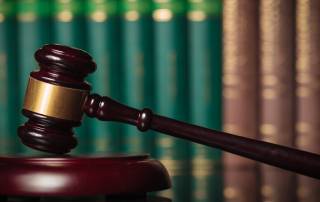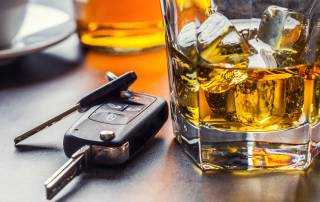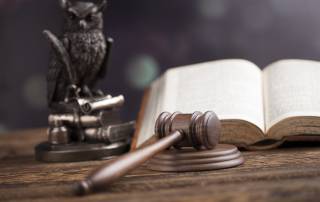If you were to ask the general public about the possible outcomes of a court case then it is a safe bet that they would easily show they understand the difference between a guilty verdict and an innocent sentence. But once you move past these initial verdicts, things start to get a little cloudy and the various terms used bleed together like colors in the wash.
Of these terms perhaps no two are so often mistaken as parole and probation. These terms are as similar as they are unique. That is to say, they cover a similar ground with similar spellings but they each approach what they cover from a unique perspective. In order to understand the difference between parole and probation we must first understand what each of them is.
What is Parole?
Parole begins during the time that an individual is incarcerated. Offender Rehabilitation Coordinators or Supervising Offender Coordinators begin the parole process by first helping the incarcerated individual prepare for their interview with the New York State Board of Parole. These interviews cover questions about the individual’s criminal activity, custodial record, future goals, their participation in various programs the prison offers and what they plan to do once they are released.
If parole is granted then it means that the incarcerated individual is giving conditional freedom. They no longer have to live their life behind bars but they are instead given a series of responsibilities of which they must live up to. Parole conditions range depending on the specifics of the individual but common conditions of parole include maintaining employment and residence, abstaining from taking part in any criminal activity or from contacting victims of prior crimes, abstaining from drug use and sometimes alcohol use.
A common condition of parole requires that the parolee stay within a geographically defined area, such as when they are told they are not allowed to leave the city they reside in. Another common condition is for the parolee to attend some form of recovery program such as drug and alcohol recovery meetings.
A parole officer will be assigned to the parolee and they will be required to meet and discuss the parolee’s ability to keep up with the conditions of the parolee. The parole officer will also make unannounced visits to the parolee’s home to ensure that they are living according to the parole conditions and not just lying about it during their meetings.
What is Probation?
Probation happens before an individual is incarcerated. Rather than going to jail, they are put on probation instead. This allows them to continue to be a part of the community rather than be removed from it entirely. As with parole there is a set of conditions which the individual must abide by, otherwise they could end up attending a probation violation hearing. A probation violation hearing may result in additional probation terms, having to pay a fine or even having the probation revoked and getting sent to prison.
The length of probation is determined primarily by the offense you are found guilty of but a typical probation period is anywhere from a year to three years. However, certain crimes result in a much longer probation period and a violated probation could result in the probation period being extended.
The conditions of probation are prone to range, again it all depends on the details of the crime for which the probation is given. But typical conditions include:
- Having to meet with a probation officer on a regular basis.
- Undergoing drug or alcohol testing.
- Avoiding known criminals.
- Paying restitution to the victims of the crime.
- Appearing at scheduled court dates.
- Not travelling outside of a geographically defined area without express permission.
- Refraining from committing any additional crimes.
- Refraining from drugs or alcohol.
How do Probation and Parole Differ from One Another?
Just laying out what probation and parole are should make some of the key differences immediately apparent. Yet it must be noted that they do also share a few common elements. Both probation and parole are focused on the release of an offender back into the community. To do this they both have checks and balances in place that are designed to limit how disruptive the criminal can be in their environment such as regularly scheduled and unannounced check-ups.
The main difference between parole and probation is when the criminal is allowed back into the community. A person can be put on probation without having to spend any time behind bars. As such it is much more likely that probation will be used in crimes of a lesser nature and especially in cases where the convicted individual has no prior criminal record. Probation serves as a way of not removing the individual from their community and thereby not rupturing their life very much. This allows the individual to learn from their mistakes without too much hassle.
Parolee, on the other hand, requires that the individual spend time in prison before they are released. Parolee is not granted by a judge but requires the individual to meet with a parolee board after serving time. Rather than keep the individual in the community, parolee is more of a way of introducing the individual back into the community.
What Happens if I Violate my Parole or Probation?
It is extremely important to follow the conditions set out in your parole or your probation. Violating these conditions can mean fines, extended periods of parole/probation or, in the worst case, a ticket back behind bars. In cases where you have violated either parole or probation it is always a smart idea to hire an attorney.
A knowledgeable attorney won’t be able to go back in time and prevent you from violating your conditions but they can help you show the court why your violation should be forgiven or taken more lightly. Here at Mirsky Law Firm we have lots of experience in cases of violated probation/parolee and we’re always happy to hear about the specifics of your case. Give us a call at (516) 299-6187 to see how we can help.





